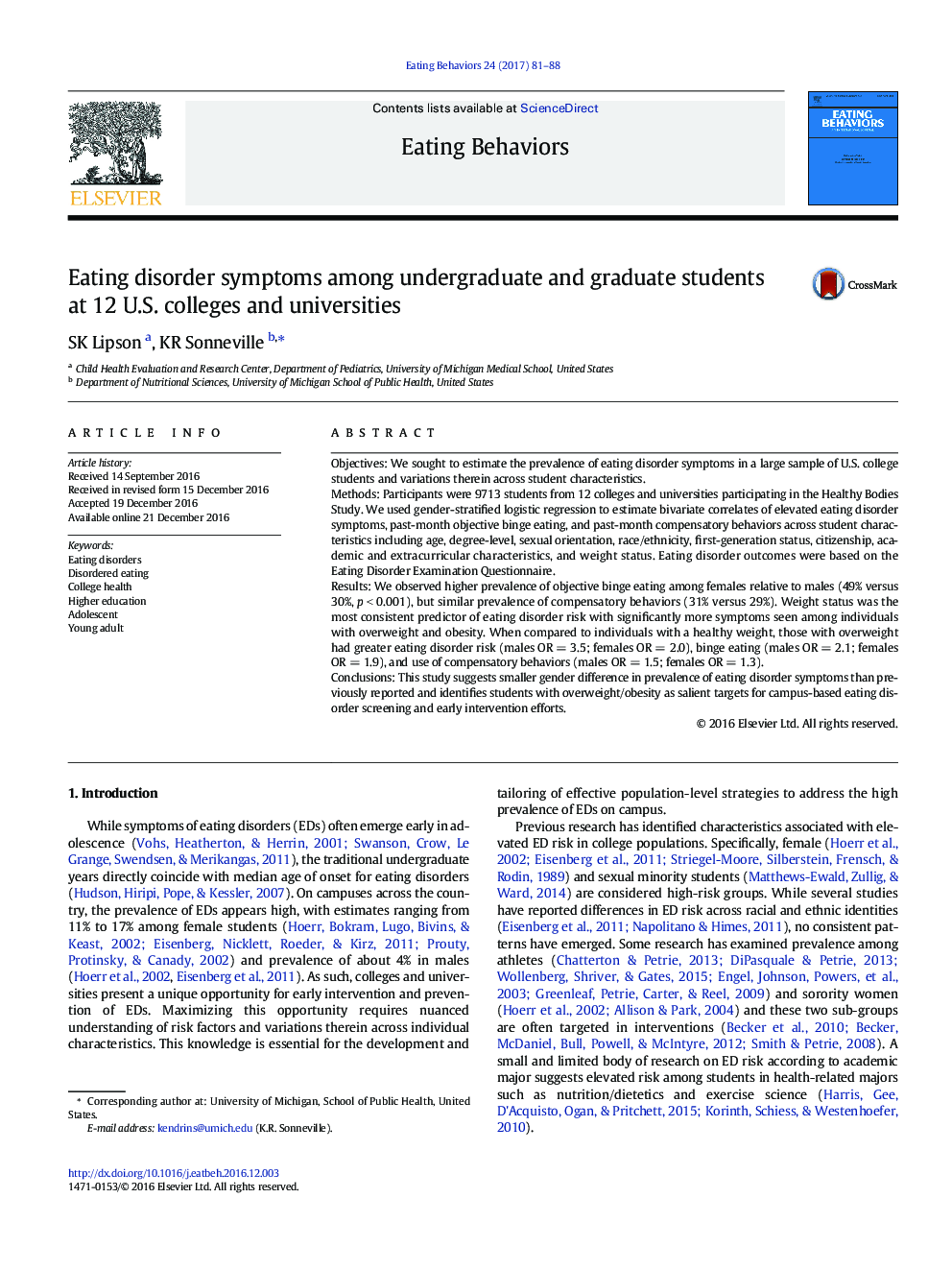| Article ID | Journal | Published Year | Pages | File Type |
|---|---|---|---|---|
| 5038760 | Eating Behaviors | 2017 | 8 Pages |
â¢No gender difference in use of compensatory behaviors was observed.â¢Elevated ED symptoms were seen among sexual minority males.â¢Weight status emerged as the most consistent predictor of eating disorder symptoms.â¢Students with overweight/obesity were at highest risk for eating disorder symptoms.
Objectives: We sought to estimate the prevalence of eating disorder symptoms in a large sample of U.S. college students and variations therein across student characteristics.Methods: Participants were 9713 students from 12 colleges and universities participating in the Healthy Bodies Study. We used gender-stratified logistic regression to estimate bivariate correlates of elevated eating disorder symptoms, past-month objective binge eating, and past-month compensatory behaviors across student characteristics including age, degree-level, sexual orientation, race/ethnicity, first-generation status, citizenship, academic and extracurricular characteristics, and weight status. Eating disorder outcomes were based on the Eating Disorder Examination Questionnaire.Results: We observed higher prevalence of objective binge eating among females relative to males (49% versus 30%, p < 0.001), but similar prevalence of compensatory behaviors (31% versus 29%). Weight status was the most consistent predictor of eating disorder risk with significantly more symptoms seen among individuals with overweight and obesity. When compared to individuals with a healthy weight, those with overweight had greater eating disorder risk (males OR = 3.5; females OR = 2.0), binge eating (males OR = 2.1; females OR = 1.9), and use of compensatory behaviors (males OR = 1.5; females OR = 1.3).Conclusions: This study suggests smaller gender difference in prevalence of eating disorder symptoms than previously reported and identifies students with overweight/obesity as salient targets for campus-based eating disorder screening and early intervention efforts.
